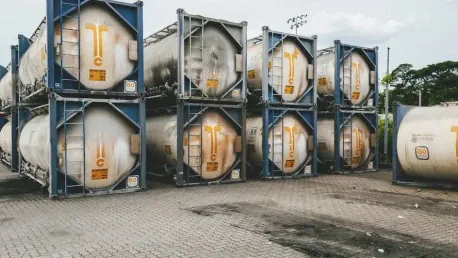
Nuclear energy companies are engaged in a vigorous race to develop microreactors. These "mini batteries" are driven by a need for affordable, safer, and more modular energy solutions. This shift is seen as a significant step in supporting decarbonization efforts across various sectors. Over recent

As the global shipping industry grapples with the challenge of drastically reducing carbon emissions and shifting toward more sustainable fuel choices, interest in LNG as an alternative to traditional bunker fuel has significantly grown. This move has been driven not only by the international

In a decisive step towards addressing the environmental and fiscal challenges caused by climate change, New York Governor Kathy Hochul has signed into law the Climate Change Superfund Act. This groundbreaking legislation mandates major emitters, particularly fossil fuel companies, to compensate for

As the world grapples with the pressing challenge of reducing greenhouse gas (GHG) emissions, the European Union has taken a significant step forward by introducing the FuelEU Maritime regulation, aimed at addressing GHG intensity in maritime transport. This regulation is the EU's first technical

The urgency of addressing climate change has never been more pronounced, with rising global temperatures and increasingly frequent extreme weather events underscoring the need for actionable and forward-thinking strategies. Effective climate policies and innovative solutions have become central to

The urgency to address climate change has led to significant global efforts to transition away from fossil fuels. However, another critical area that demands attention is the overconsumption of animal protein, particularly meat. This article explores the imperative to reduce meat consumption as a